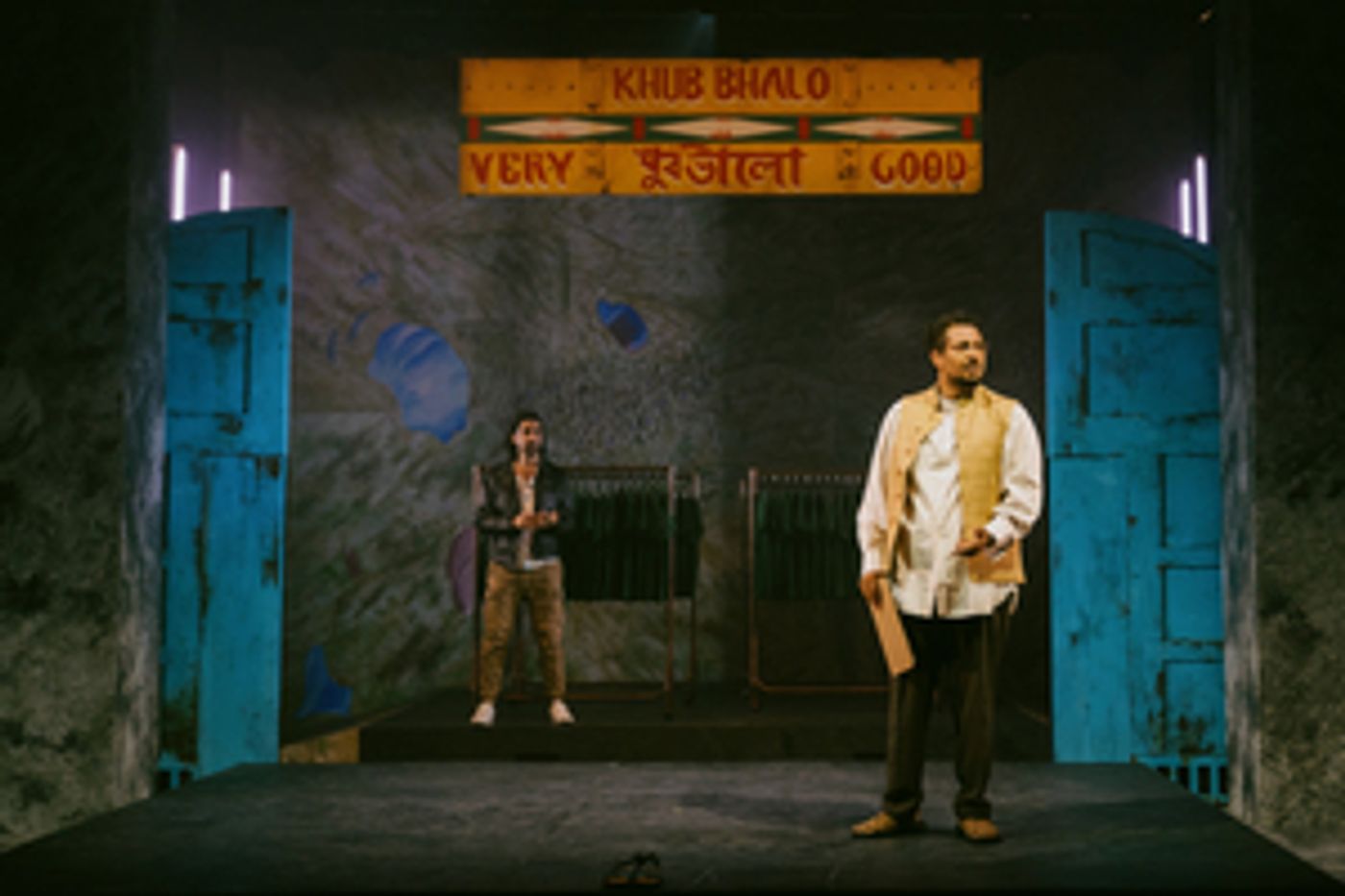Review: CHASING HARES, Young Vic
Ayesha Dharker and Irfan Shamji star in this tale of theatre and activism

![]() "I'm not political. Not at all." Prab and his wife Kajol are struggling to make ends meet in early 21st century Kolkata. Since the local factory closed indefinitely, they've had to take on any jobs going to be able to support themselves and their baby daughter, Amba.
"I'm not political. Not at all." Prab and his wife Kajol are struggling to make ends meet in early 21st century Kolkata. Since the local factory closed indefinitely, they've had to take on any jobs going to be able to support themselves and their baby daughter, Amba.
After treating themselves to a night at the theatre, they find themselves backstage with the performers (Davesh and Chellam) - one of whom just so happens to be the son of the factory owner. Initially hoping to get back in the family's good books if the factory ever does reopen, Prab inadvertently finds himself with a more stimulating task.
A few weeks ago, James Graham's TV series set in a former mining community, Sherwood, found itself on air as the first wave of train strikes hit the UK - and, in another serendipitous turn, Chasing Hares will be running as RMT and TSSA union members strike again over proposed changes to working conditions. Both of these pieces of entertainment allow viewers to empathise with the workers and understand why strike action is necessary; Sonali Bhattacharyya's play potentially opens this idea up to wider audiences, with its Indian setting and use of a different industry. It certainly pulls no punches in its advocation for workers' rights.
It also demonstrates the power of art in communicating with and inciting the masses. We see some scenes from Prab's play, which he claims to be based on long-lost legends - but in reality it's an allegory for the working class struggle against landowners and corporate chiefs. Donato Wharton's sound design works particularly well in these scenes, creating the feeling that you're part of a mutinous crowd (and even encouraging some patrons to join in!).
There are various points in the play that do actively seek a response from the audience, giving the play some added dynamism; it feels like a living, breathing entity, rather than something more staid and earnest. Akhila Krishnan's video designs, projected onto the relatively plain backdrop of Moi Tran's set, bring the play to life in a different way - both when Prab is telling Amba stories to try and help her to sleep, and also to depict his inner conflict when Davesh treats him as a stooge when the factory reopens.
Scott Karim is truly devilish as Davesh, his dark humour steadily developing into outright villainy as he is corrupted by power; Ayesha Dharker imbues fellow performer Chellam with optimism and playfulness, unafraid to stand up for what is right. Saroja-Lily Ratnavel combines Prab and Kajol's best traits into her portrayal of a grown-up Amba, cautious about endangering her young family but keen to try and change things for the better.
In Zainab Hasan's Kajol, we have a no-nonsense working woman, whose number one priority is security for her family - this, however, strains her relationship with Prab as the couple negotiate the sudden change in their fortunes, orchestrated by Davesh. The awkwardness that defines Irfan Shamji's Prab gradually fades as he becomes more active in the arts, and witnesses more atrocities at the factory; he is also joyful to watch as he regales Amba with stories, revelling in his chance to shape a young mind.
Chasing Hares focuses on some incredibly serious topics, but in the hands of director Milli Bhatia and the company of five it doesn't end up as heavy as the synopsis might lead you to expect. The performances are heartfelt and memorable, and the play is as entertaining as it is meaningful. An important piece to watch.
Chasing Hares is at the Young Vic until 13 August
Photo Credit: Isha Shah/Akhila Krishnan
Reader Reviews
Videos

